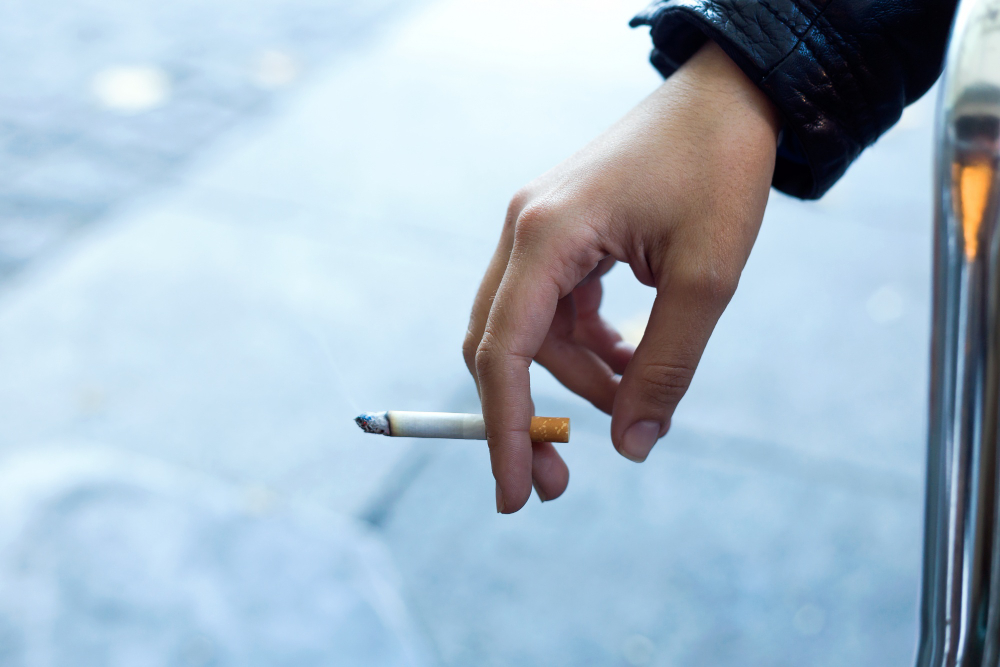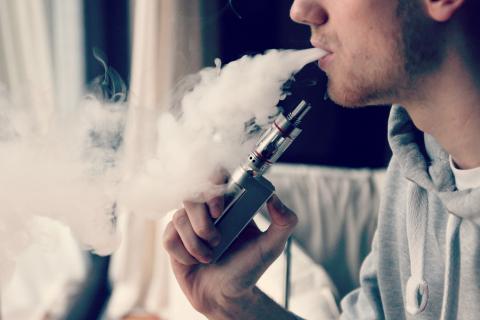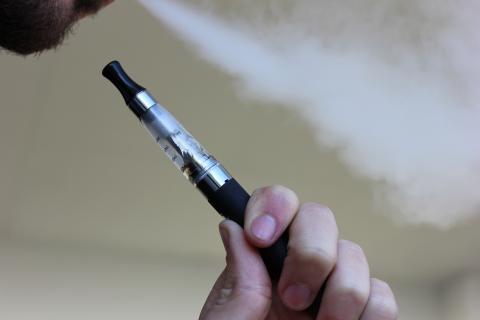Reactions: tobacco alters the immune response even in the long term
A study has analysed more than 100 environmental factors and their impact on the immune response. After studying about a thousand volunteers, its conclusions are that smoking is the factor that causes the most alterations in defences. While some changes are transient, others may remain for years after quitting. The results are published in the journal Nature.

Hoyos - Tabaco (EN)
Marcos López Hoyos
Scientific Director of the Valdecilla Health Research Institute (IDIVAL), Head of the Immunology Department, and Professor of Immunology at the University of Cantabria-Marqués de Valdecilla University Hospital
I love the work. It is a very well-targeted and well-managed work. It uses a very good number of volunteers: 1,000 volunteers with 200 per decade (100 and 100 per gender). They collect samples and a number of more than 100 socio-demographic and environmental variables.
I am convinced that more work will come out of this study, as there will be more results due to the methodology used.
It helps to explain possible alterations in the immune response that we frequently see in the clinic of smokers (and usually overweight) who reach the age of 60 with suspected immunodeficiency secondary to smoking in the context of chronic obstructive pulmonary disease (COPD) and where hypogammaglobulinemia [low antibody concentration] is seen relatively frequently.
The work provides data on inflammation due to activation of both the adaptive and innate immune responses, which contribute to complicating the course of COPD.
They relate the variables collected to data on the production of immune response cytokines produced in the supernatant of whole blood from volunteers subjected to different stimuli by microorganisms and by non-specific polyclonal stimuli, which is more consistent and biologically plausible, unlike many studies where cytokines are studied in serum, where we know there is a lot of variability.
The limitations are well identified by the authors, in particular the need for a validation cohort. From this study, validations will almost certainly be proposed.
In short, this is a very interesting study with clear clinical implications in a prevalent problem such as COPD, which presents with exacerbations and repeated infections that often lead to the suspicion of an immunological disorder. As the study indicates, smoking itself alters the immune response, and this has been very elegantly demonstrated.
África - Tabaco (EN)
África González-Fernández
Professor of Immunology at the University of Vigo, researcher at CINBIO, and member of the RAFG
The paper, published in Nature by the Millieu Interieur consortium and French researchers from the Pasteur Institute in Paris and Karolinska in Sweden, has carried out a systematic study of the levels of substances (called cytokines) released by the immune system in response to infection or damage (such as exposure to smoking tobacco).
Researcher Polly Matzinger proposed in the late 1990s that the immune system is an internal control system of the body and that it is activated in situations not only of infection, but also of harm and danger. This is why analysing what elements can modulate the immune system is very important, as it is not only pathogens that can do this, and tobacco may be one of them.
These researchers have analysed the effect of various parameters such as age, sex and smoking, among others. Their intention was to study how the immune system is affected in response to certain stimuli, which they analysed in vitro, studying the production of cytokines that are related to the cell type that produces them. They found that age, sex, genetic variations, DNA methylation levels and cell subtypes, cytomegalovirus infection and body mass index, along with smoking, were the most important variables in terms of the changes they observed in cytokine production.
In this work they have shown that being a smoker changes the immune system. But the important thing is that it does so persistently and that even after quitting smoking its effects last.If a person stops smoking, he or she recovers the innate immunity, but not the adaptive immunity (mediated by lymphocytes). This would indicate that there would be a persistent 'memory of smoking' in the immune system, which has an important implication, as smokers may develop other diseases such as cancer, autoimmunity or allergies, or respond abnormally to infections.
The study is very interesting, although the results would have to be validated with another cohort, but it opens up a line of study to also analyse other aspects that could act on the immune system, such as environmental pollutants, chemical agents, fertilisers, pesticides, etc.
A limiting aspect of the work is that all the studies have been carried out with peripheral blood cells and there are no data on how tobacco exposure affects the respiratory level (such as the mucosa and bronchoalveolar fluid).
Molina - Tabaco (EN)
Ignacio J. Molina Pineda
Professor of Immunology and Director of the Department of Biochemistry and Molecular Biology 3 and Immunology at the University of Granada
The article by Saint-André et al. demonstrates that smoking substantially alters both the non-specific and specific immune response. Remarkably, while the alterations in the non-specific response are reversed after cessation of smoking and thus return to normal, the significant changes observed in the specific response are maintained for years after cessation of smoking. The authors further demonstrate that these changes are the consequence of smoking-induced modifications in the regulatory mechanisms of important immune system genes, and if smoking similarly affects the regulation of genes other than those studied, this could explain why smoking is such an important risk factor in the development of tumours in organs other than the lung.
This is a high quality work carried out with scientific rigour and the results obtained are of great medical relevance. However, as the large study population was deliberately homogeneous, it remains to be seen whether these findings would also be found in other people with different racial profiles to the selected cohort.
Óscar - Tabaco (EN)
Óscar de la Calle-Martín
Specialist in Immunology at the Hospital de Sant Pau in Barcelona and secretary of the Spanish Society of Immunology
The study is excellent, especially the selection of the cohort and that it adds to other national initiatives, as has been done in the UK and Iceland. In Spain we should take an example to be able to study our own health problems in depth. The article presents an excellent and ambitious experimental approach, but precisely the size of the cohort implies certain experimental limitations. The variables analysed, tobacco and body mass index, are very frequent, and CMV status [cytomegalovirus infection] is used as an additional control.
The experiments are generally adequate, although further analyses will be needed to verify the conclusions. I am convinced that Dr Luis Quintana Murci's contributions are among the most relevant in the article, he is a great authority in his field.
It fits very well with the epidemiological data that already told us that tobacco, in addition to a direct carcinogenic effect, had effects on the immune system. This has implications not only with regard to tobacco-associated cancers: lung, laryngeal, intestinal, etc. Dysregulation of the immune system is a key element in the generation and spread of neoplasms. It has also long been known that tobacco increases the incidence of autoimmune and inflammatory diseases, has perverse effects on the cardiovascular system or fertility, and many other negative effects. This article reveals that much of this effect is due to a long-lasting dysfunction of the adaptive immune system, while its effect is limited and reversible on the innate immune system, is much more long-lasting on lymphocytes and is closely related to the years smoked and the amount smoked. This deleterious effect takes a long time to disappear after quitting smoking.
For me, the main limitation of the study is that the authors themselves comment that the findings have not been repeated in another cohort, although I would add something else: a more detailed study is needed with more variables, of course in a smaller group of smokers and controls, with other exposure times, response curves, etc.
I have no conflict of interest (except that I am a doctor and a non-smoker).
Saint André et al.
- Research article
- Peer reviewed
- Non-randomized
- Observational study
- People



